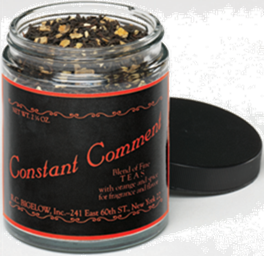In 2023, the tea industry said farewell to several notable figures. In this episode, we pay tribute to David C. Bigelow, Jr., an industry icon who died in June at 96. A member of the silent generation born in the roaring 20s, David was a World War II veteran and 1948 Yale University graduate who transformed the specialty tea segment. He steered a boutique tea blending business launched in his mother’s kitchen into a multi-million-dollar mass-market brand. Joining us today is David’s daughter Cindi, President and CEO of Connecticut-based and family-owned R.C. Bigelow, a $250 million B-Corp known for innovations that redefined tea service in restaurants and grew the company to become the US market leader in specialty tea.
Listen to the interview
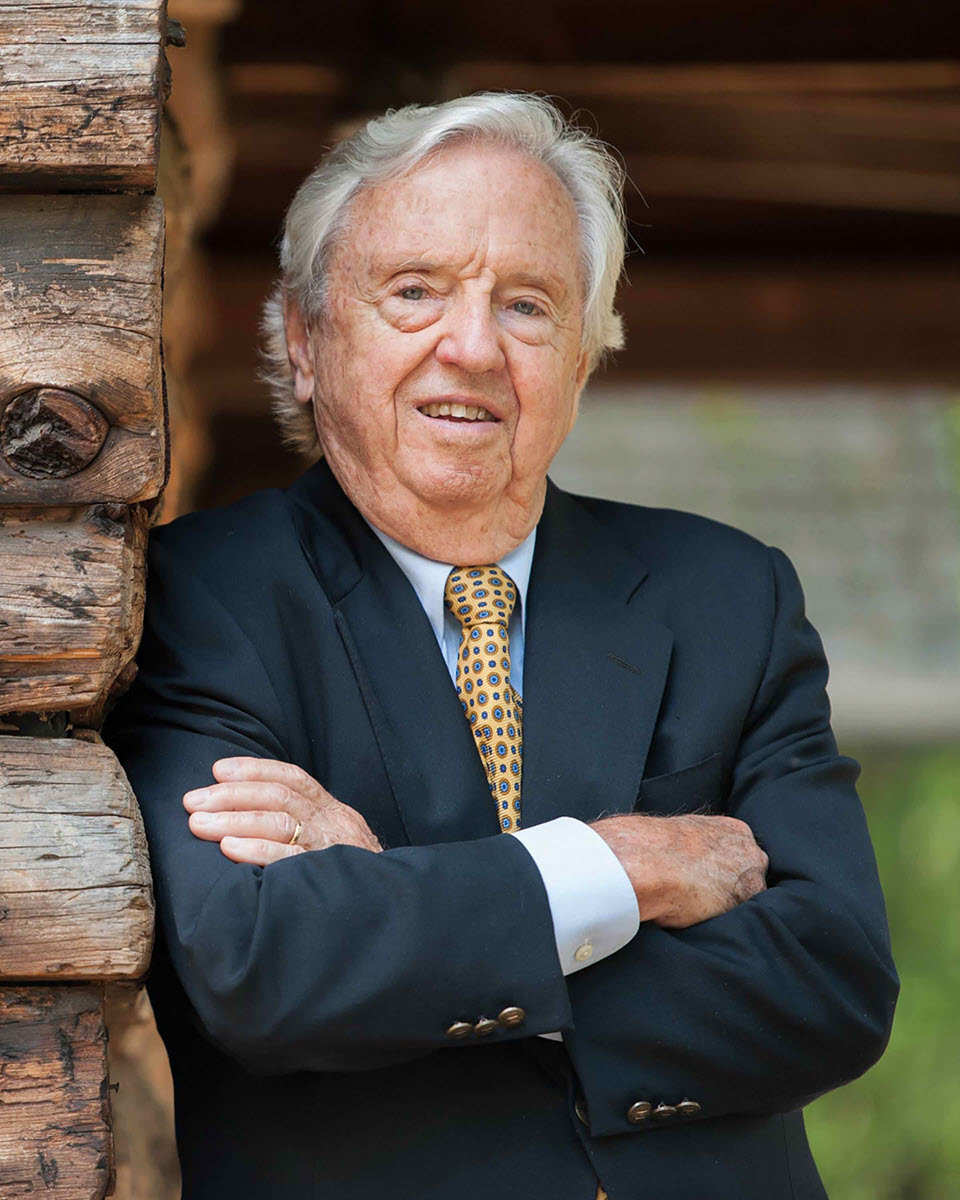
David Bigelow’s Tenacity Established Specialty Tea in US Grocery
By Dan Bolton
The 55 million members of the Silent Generation were hardworking and humble. Survivors of the Great Depression and the horrors of war – they were careful with their money, patriotic, and ambitious. The generation displayed characteristics of thrift, simplicity, patience, and a need for financial security and comfort. Cindi Bigelow is the third generation to lead Bigelow Tea, founded in 1945 by her grandmother, Ruth C. Bigelow. During her years as chief executive, sales have increased from $94 million in 2005 to more than $250 million. Bigelow Tea produces over 100 million-units of tea boxes annually and employs 450 people.
““My father was my mentor for my entire life, personally and professionally. He never wavered from the traits I admired the most. He was a humble, grateful, and kind man. He leaves a big hole for my family, our extended family at Bigelow Tea, and far beyond, but we will continue with the lessons he taught us all… think about others before self.”
– Cindi Bigelow
Dan Bolton: I speak for many who admired your father for his business success, the life he shared with your mother, Eunice, the family he reared, his philanthropy, and the quiet impact he exerted at a time of transformation. He was a man who led by example.
Cindi Bigelow: I just hope to share with the world, especially those in the tea sphere, the story of how my father and my family were so influential in bringing the specialty tea category to where it is today.
Dan: Let’s begin the interview there. Could you talk about his role in expanding distribution and pricing? He pioneered a way of looking at tea that forced it up higher on a shelf in grocery stores. There was always an expensive tea from England, but this isn’t an import; this is tea blended and packaged in the United States – and your dad was doing something quite extraordinary.
Cindi: Well, first, it goes back to him expanding his specialty tea category. My grandmother introduced specialty tea when she created Constant Comment in her kitchen. She also expanded it to include many different flavors. Now, all of those teas were sold in gift shops.
When my father took over, he modified the tea offerings in the specialty tea category as well as their flavor profile.
He was the one who transitioned into the grocery stores, where he had to build an entire shelf presence. With his broker team and distributors, they carved out space for the specialty tea category, which was priced at a premium level because it was not a commodity tea. There was a lot more that went into it.
But it was a very slow build.
His tenacity is why we’re now number one because when it started, no one even knew what specialty tea was, and no one wanted to spend that kind of money on it. They had to go through all kinds of creative ways to get it on the shelf and then keep it on the shelf — it was completely new in the industry.
Dan: In 1945, a 2.25 oz jar of Constant Comment sold for less than 75 cents, a “premium” price point. The price had more than doubled by 1960, at a very early stage of consumer awareness of the specialty tea category retail. R.C. Bigelow blends were “top shelf” packed in tins with premium Ceylon tea and ingredients. Sales, however, were a modest $1 million. By 2005, under David Bigelow’s leadership, sales increased to $94 million as the brand transformed into food service and a mass-market favorite that retained its appeal as a premium blend.
Cindi: Well, it wasn’t until the ’70s that my parents started to put the product into foil and then fold cartons. That started because my father’s forays into the food service arena with the individual product team went back. He had been at the University of Hawaii, and they had our product in loose bags in a basket.
They came back and said that just doesn’t seem like the right way to sell it. So, they found a company that could put it in foil. It was not ever done before. And we started producing foil-wrapped tea bags going into boxes that we could now sell in the food service.
That’s when he realized this would revolutionize the tea industry if we could get this on the retail shelf because you can bring the ring down so it’s a little bit within reach of everyone to enjoy a cup of tea, which is still our motto. We want everyone to be able to afford a cup of Bigelow tea, but it is still premium and is no longer in a canister.
So, he moved us into foil wrappers to be able to handle the food service arena brilliantly. At the time, we were first into the food service and away-from-home marketplace.
Then, with that, they recognized that these cartons and foil individual wraps could make a big difference on a grocery shelf, so they started in Arizona and tested it down there, and it was a huge hit. Sales went up three times. From there, it was rolled out throughout the country.
We went from pneumatic machines to IMA machines and Teepack Constanta. He completely revamped the organization in the 70s and early 80s.
Dan: Something else he did to encourage the selection of tea was to put those foil packs in tea chests on the counter or bring them to the table, where the waitress would say, “Please choose from our selection of fine teas.” There may have been a selection of 8 or 10 in the chest.
Cindi: He had a great team of people in R&D (research & development), one who also passed away a few years ago was brilliant in creating the tea display chest, which again completely revolutionized the way the restaurant business, the catering business, everything about it they were not afraid to really push into industries with products with packaging that had not been seen before.
One of the points of this article is to let people understand the impact that he and his team had. If he knew I was giving this interview and using his name and not listing everyone who did all the work, he would be very upset with me, Dan. It’s under his leadership and his drive that our company was able to transform the tea business.
Dan: Who did he pal around with? Was it the guys at the grocery chains like Kroger and A&P?
Cindi: Believe it or not, my parents established really close relationships with the distributors. He was huge down in Florida. I can’t think of the names of all the distributors and brokers. They were so close, so close. Also, they had really good friends in the tea industry.
My father was wonderful, but networking wasn’t part of his MO. And I always admired that about him. He let the brokers and distributors do the work. He believed in letting them take the lead and do what they excel at. He made sure they were educated, they knew who we were, and then let them go.
Dan: Will you help readers better understand the breakthrough years when Bigelow expanded from a niche gift shop and regional brand to reach markets in the big cities and eventually saturation across the country?
Cindi: Well, we weren’t dominant anywhere in the 60s. We were in California, which was a big market for us. It wasn’t a national brand. If you have no sales, you dilute it. Moving into the big cities, there are even fewer sales. So, there was no market where Bigelow was dominant.
We were in gift shops in the ‘60s and on university campuses. A lot of the college kids enjoyed Constant Comment. It was cool to drink, Constant Comment* ” But sales were so small. We finally achieved $20 million in sales in 1985. So, we were a very small company. In the ‘60s, sales were a million and a half maybe.
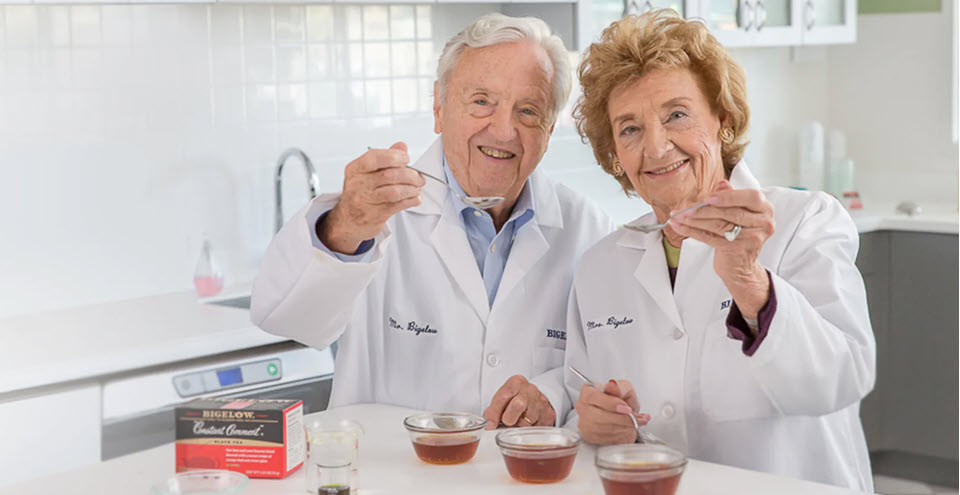
Dan: There was a business breakout, though, during the ‘80s
Cindi: Part of that growth was the foldable cardboard packaging and carton boxes on the shelf from the late 70s to the early 80s. At that point, we took off because we were now very stackable. We could have a price that was more thoughtful of the consumer. Then, there were line extensions. My father really got into the herbals in the ’80s and expanded to green teas in the ’90s. There weren’t even any green teas out there. Bigelow tea is the one that would put green tea on the shelf. I still think it is such a great product to consume. It is so helpful. But to be honest, there are many green teas out there that are very hard for the average consumer to enjoy. We are very blessed that our green tea is number one. We have a 40% share, and that is because we believe that our taste profile is a very drinkable, enjoyable tea. The 90s was a real rocking time for us for sure.
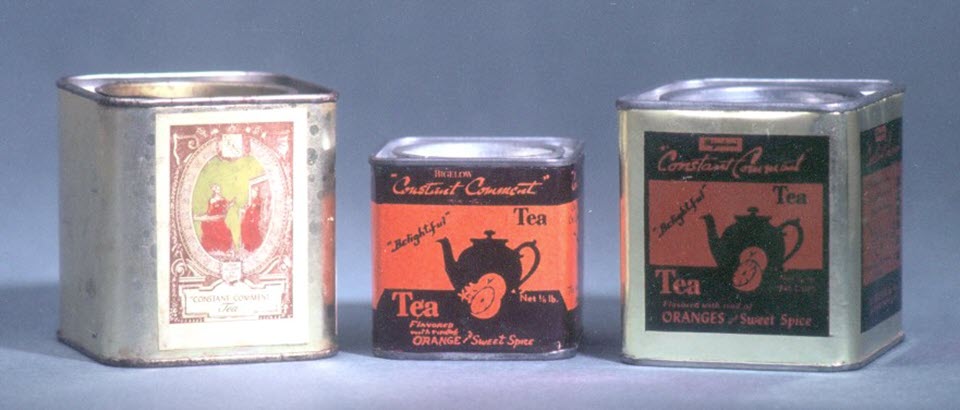
Cindi: Truth be told, Mo Siegel started the herbal business with the launch of Celestial Seasonings. He pioneered the herbal category.
My father looked at it and wasn’t quite sure. He asked, “What is this? Is this where we want to be?” Because he was a tea guy. He was a camellia sinensis guy. And you know camellia sinensis people are camellia sinensis focused, and so he, you know, waited a few years and then with good counsel said, “You know what, I do think we want to get into the herbal arena.”
Today, the herbal category is the largest in specialty tea, hovering around almost 60%. So, we are the number two player. We’re number one in the tea arena, within one specialty tea the number one tea, but in the herbal subset, we are number two, but we are gaining and getting a lot of attention for the good herbs we are launching in that arena. They are experimental.
My father’s foray into the foil wrap, which protects the vulnerable oils, whether it’s the Camelia sinensis or the volatile oils of a chamomile or a mint, that’s what gives you the health profile. That’s what gives you the taste profile. So, putting that into the foil allowed us to put those kinds of mints in there to protect them from losing it and getting exposed to light air moisture. And so, when we did move into the herbal category, we were able to, you know, move in in a big way, and it’s a big part of our business now.
“He didn’t have to pass away for me to appreciate him. He knew I appreciated him every single day, and that’s one thing that I’ll be able to carry with me forward even though he’s gone. He knew how much I loved him.”
– Cindi Bigelow
Dan: So, let’s discuss his character, integrity, and worldview. David is admirable, in part because of context, as these guys were beaten down by the depression and fought a war. Your dad was a Japanese military interpreter. The survivors came home, earned degrees, started businesses, built companies, and prospered. The death and destruction, fears and dreams, and experiences changed their point of view and made them better human beings. In the family business, you describe your dad as a mentor, someone you admire. That’s a good starting point.
Cindi: Well, I think, watching him in action, watching him listen to people, watching him ask questions, watching what an amazing conversationalist, watching how much fairness meant to him, you know, making sure everybody has a voice, watching his reaction if he was getting what he considered to be an untruth or sort of a slippery slope answer.
You know, all of those are really what formed who I am today: having a father who wasn’t greedy, having a father who didn’t focus on making money, having a father who never talked about money, having a father who would be generous with you, but just was overall all careful with the dollar.
I don’t say that in a way that he was afraid to spend it, but he just didn’t need to buy many things. We had one nice car. I remember when we got a Lincoln Continental in the 70s. He was very proud of himself and the Lincoln Continental, just in his own way.
He was always there whenever I needed somebody or something. So that’s how I’ve tried to be with my own family: when that phone rings, I pick that phone up. They want me to drive up. They want me to go somewhere. They want me to fly somewhere. I do whatever it takes. Your family is first, and I learned that from him.
I run this company where it isn’t about making money. I mean, you have to make money. You must be able to buy the things you need. Money, to me, means paying the employees a bonus.
I learned that from him.
Dan: So, let’s talk about his philanthropy for a minute. He cared about his neighbors, community, and schools. He established a local foundation to support local causes. Your company donates more than $800,000 a year.
Cindi: Well, he loved to share the story of when he started the Bigelow Tea Community Challenge 36 years ago. He was motivated by me; he said, “You know, I’m watching my daughter give so much money back to the community.” He rallied this community around this event, donating more than $2 million to charities in Connecticut (See below).
He said, “I want to do it in a bigger way.” And not in a competitive way. So he started to put funds in place that he was able to distribute to the community, with the largest being the Bridgeport Public School system. So yeah, for a good 20 years, he has been very, very philanthropic, and you know, it’s very sweet to talk about what triggered him. You know, he was not a man to have an ego, right? So he said, “I like what she’s doing. I want to do that, too. So, it became a big part of my parent’s life. And it’s something that they’re very proud of, and it is a great legacy.
The Foundation will continue focusing on education in the Connecticut Bridgeport area. He really did love that he would always be so impressed he would go whether it was the high schools we would be putting on performances. Dad and Mom would be funding the costumes, lighting, and music, and he would be so proud when he came back about what he saw and always so impressed with the students. He would go to the STEM programs, the robotics, the girls that code, and my mother as well. They were so touched by what they saw in the community, and they got to see firsthand, and he got to see firsthand, before he passed for many years, the good work of his Foundation.
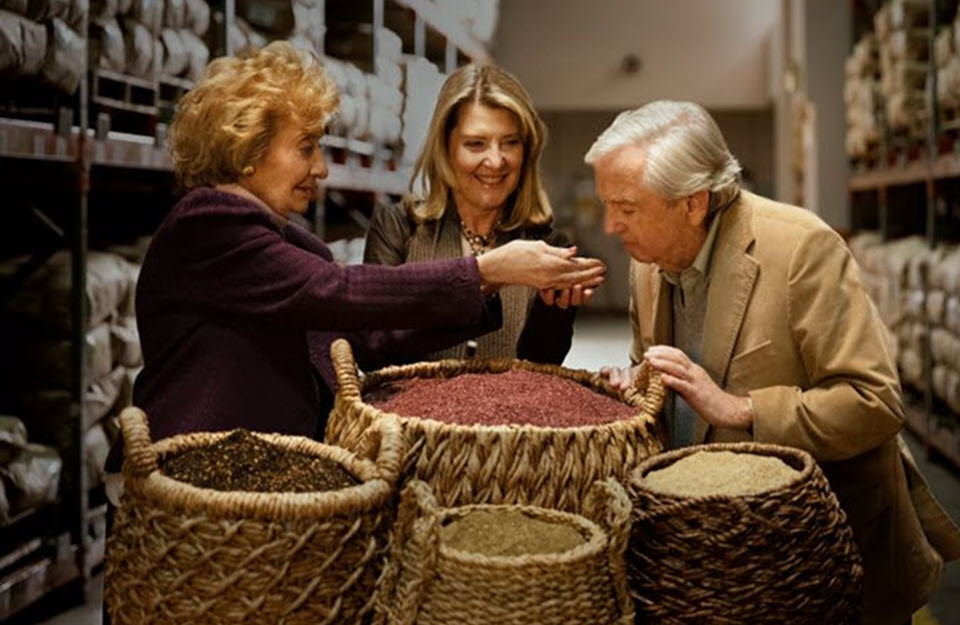
Dan: He made a difference in his 96 years in tea and leaves a legacy in your work.
Cindi: Oh my God, everything I do rests on the shoulder. He’s the first one to tell you that everything we do is on somebody else’s shoulders. And you need to honor that.
I think your original question was, ‘What was it like being his daughter?’ You know, he did do it all. He wasn’t a different guy in the office than at home. He did have a little bit of a temper when he thought you weren’t telling the truth. But he was a very kind individual that was very engaged. I always knew he had my back. He was always there for me.
The company felt the same way. I never felt shortchanged, not for a minute, not for a minute. The company certainly felt loved by both my mother and my father. And so it truly was a family. I mean, I didn’t know any better.
I was very little, wearing an outfit and handing out Christmas presents, as was my sister to everyone at the Christmas party, and my mother said to me, ‘You have to stop kissing everyone. You’re just going to get sick.’ I didn’t know anything except for the family business.
He loved tea so passionately that I don’t know if I’ll ever be able to do it like he did. He was passionate about the product, right? I consider myself more of a businesswoman who loves tea, and I think I’m pretty good with tea, but he was a tea person who ran a business — different story. So yeah, I was very lucky. I was very lucky.
I was very fortunate to have good schooling leading up to my running the company, but he was a great teacher. Perhaps my greatest teacher.
*Yes, it is true that musical composer and singer Leonard Cohen, in his famous love song Suzanne, was inspired by the brand. Cohen told NPR in 2016 that the line, “and she feeds you tea and oranges that come all the way from China,” was, in fact, inspired by Constant Comment. “She fed me a tea called Constant Comment, which has small pieces of orange rind in it, which gave birth to the image,” he said.
Related: David C. Bigelow’s Obituary published in the Palm Beach Post
David’s Favorite Tea
“He loved our Ceylon Premium Tea, which was really put together for the airline industry,” recalls Cindi Bigelow. We sold a beautiful Ceylon product in that category, and he loved that tea. It was his absolute favorite. And, you know, you’d compete with other companies to sell to the airline industry, and you couldn’t quite describe to them that the price they were getting for that outstanding Ceylon tea was like nothing else you would ever imagine—people who know this tea love to sell it for you. So, that was his favorite. He had that every single morning. True story: During COVID-19, we had difficulty getting that tea and had some difficulty shipping from Ceylon. What we could get was different from our gold standard, and he absolutely knew that, and he stopped drinking it just like that. “I’m not drinking it until we get the good stuff back,” he said.
Bigelow Tea Community Challenge
Seventy-nine sponsors contributed to the 2023 campaign, including several prominent tea industry suppliers. Beneficiaries include YMCA of Fairfield, Mercy Learning Center, Cardinal Shehan Center, Neighborhood Studios of Fairfield County, Center for Family Justice, Connecticut Food Bank, Operation Hope, Burroughs Community Center, Grasmere by Park, Caroline House, Bridgeport Rescue Mission, Janus Center for Youth in Crisis, Norma Pfriem Breast Center, Bridge House, CT Challenge, Taylor YMCA, Camp Hi Rock, Horizon’s at GFA, McGivney Community Center, Pivot Ministries.
Photos are courtesy of Bigelow Tea—special thanks to Cindi for sharing family photos.
Latest Episodes
Powered by RedCircle
Share this post
Episode 148 | In 2023, the tea industry bid farewell to several notable figures. In this episode, we pay tribute to David C. Bigelow, Jr., an industry icon who died in June 2023 at 96. David transformed the specialty tea segment in the US, steering a boutique tea blending business launched in his mother’s kitchen into a multi-million-dollar mass-market brand. Joining us today is David’s daughter Cindi, President and CEO of Connecticut-based and family-owned R.C. Bigelow, a $250 million B-Corp known for innovations that redefined tea service in restaurants and grew the company to become the US market leader in specialty tea.

